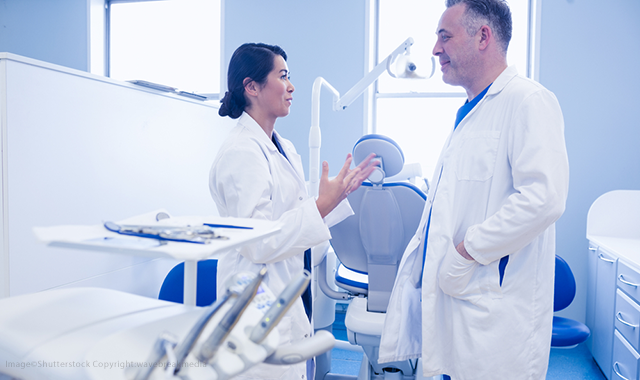Why you need to support your co-workers
Do you strive to make your office a supportive environment, or are you just looking out for your personal interests?

What motivates you to help someone else? Think of this not just in your personal life but at the dental practice. What does it take to get you to be on time, work as a team member, or just show an interest in your co-worker’s life?
For some of us, it’s about what we’ll gain. Is it money? Is it respect? We have an agenda for everything, right? Wrong! I’m talking about the intrinsic gains, the internal voice inside your body that guides your decision making. Have you been listening to it?
For the past eight years, I’ve published 110 articles in this industry. I respond to all of my readers who email me. Five years ago, a woman named Carla Googled "customer service and dentistry" and found one of my articles. These articles are geared toward dental professionals, not the public, but Carla reached out to me. It changed not only my life but hers as well.
Carla was a 37-year-old woman, a full-time college student who also worked full-time at $8 per hour and, on top of that, had three children. Her teeth were breaking off in her mouth, and she was terrified she would become septic and get ill from these holes in her mouth. Her fear was who would take care of her kids. She stopped talking, stopped smiling. Carla was going through this nightmare without sharing it with her loved ones, and she was struggling.
More from the author: How to handle emotions in the dental practice
She saw my article and thought I might understand, so she wrote to me (something she had never done before in her life). I called her and we hit it off. Within 24 hours, I was giving a speech at the Rockwell Automation Toastmasters Club about Carla. Before the meeting, I had made a sign that said, “Carla, we support you.” After my speech, I asked the members to stand behind the sign and have a picture taken. It was texted and at the end of the meeting, we had a response. Carla, who is quite eloquent, talked about how “tears were streaming down her face at seeing how kind humanity can be.” We made a difference in someone else’s life letting her know that she wasn’t alone. We listened to our internal voice to stand up and do something, even if it was just taking a picture.

This story isn’t about how I got her the help she needed. Instead, it’s about when do you get involved in a stranger’s life or the life of your co-worker? Getting involved can be sticky.
I learned a lot from this experience. Think about it: If your co-worker gets a call that her mother fell and is being taken to the hospital, what do you do? Do you offer to leave work and drive her to the hospital? Or do you just feel guilty that you should be doing something but don’t know what?
This is your call to action. Listen to your internal voice. It sings loud and clear if you let it. Look around you. Who can you help? If you’re aware that your co-worker is having a challenge, do something. Half of it is just to show up; don’t run the other direction. Ask “What can I do to help?” Make the decision to get involved. Find a solution. Call, text, leave a card. Arrange for food to be sent in. Do something! Let this person know that he or she isn’t alone. Help someone else. That is my call to action.
Taking a picture and reaching out to a stranger gave me much more than I gave her. She was able to have $14,000 of free dental work as a result. But what I got was priceless. See what you can do to change the world or make it a more supportive dental practice.
Share with me things that you do to help others at diana2@discussdirectives.com.